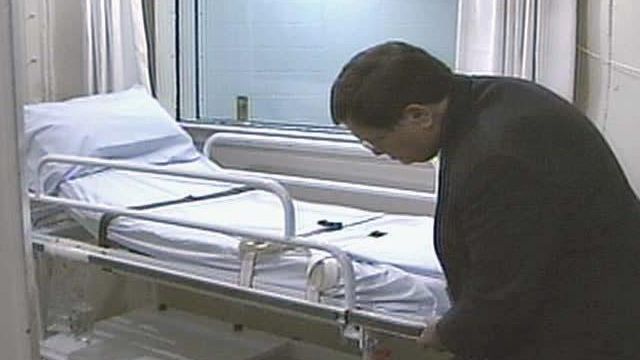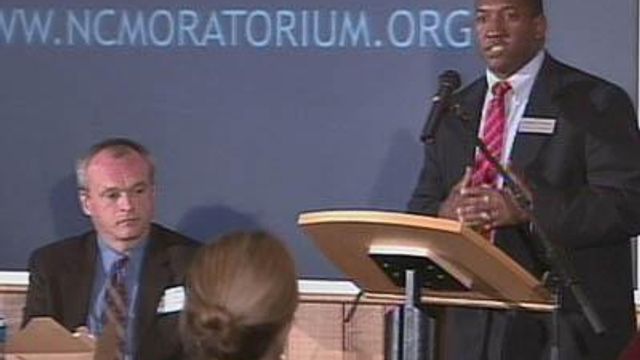Local News
Death Penalty Opponents Lobby for Lawmaker Moratorium on Executions
With the future of the death penalty in limbo in North Carolina, opponents are speaking out in hopes that lawmakers will listen to their concerns about capital punishment.
Posted — UpdatedRALEIGH, N.C. — With the future of the death penalty in limbo in North Carolina, opponents are speaking out in hopes that lawmakers will listen to their concerns about capital punishment.
The courts have temporarily stayed executions while legal conflicts about how it is performed can be worked out. The issue of race has now become an important part of the ongoing debate.
Studies show that an assailant who kills a white person is more likely to be sentenced to death in North Carolina than if they killed a black person. A forum that met Monday in Raleigh said that is just one more reason the death penalty should be stopped.
“Race makes a big difference in who lives or dies and that should not be a factor at all,” said Harvard law professor Charles Ogletree.
During the forum sponsored by N.C. Policy Watch, participants talked about the role race places in how the death penalty is applied.
“Race made a difference where it shouldn't have, where those who killed white victims were more likely to get capital punishment than those who killed blacks,” said Jack Boger, dean of the University of North Carolina School of Law.
John Hood is the director of the John Locke Foundation, a conservative political think tank in Raleigh. He said that North Carolinians favor the death penalty.
“(Opponents) want to abolish the death penalty because they think it's wrong,” Hood said. “They don't want to abolish the death penalty because they think it's racially unjust.”
Ultimately, it will be up to the courts and the General Assembly to decide what happens to the use of capital punishment in the state. And while there is growing support among state lawmakers for a moratorium, the conventional wisdom is that the issue will not be raised this session unless the votes are there to make it happen.
Rep. Deborah Ross, D-Wake said if a handful of lawmakers put their necks out and the moratorium doesn't pass, their actions could end up hurting them at election time.
“The tendency is to not bring it up unless you know it's going to pass,” Ross said.
• Credits
Copyright 2024 by Capitol Broadcasting Company. All rights reserved. This material may not be published, broadcast, rewritten or redistributed.






